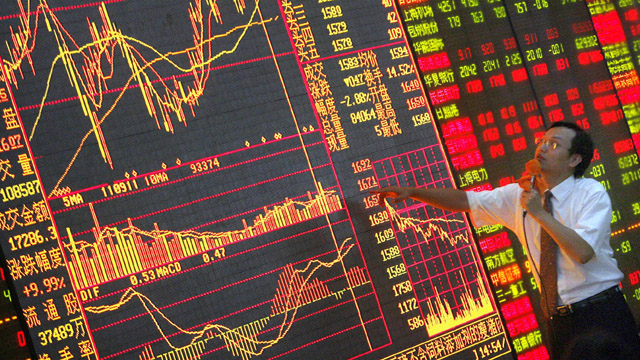Under President Xi, censorship has expanded in scope and is increasingly impacting areas such as academia and topics such as economics. This month, a British academic from the University of Nottingham’s Ningbo campus was removed from his position, allegedly in response to an article he wrote critical of the CCP. After living and working in China for nine years, Christopher Balding, an Associate Professor at Peking University’s HSBC School of Business, also had his contract terminated. He writes of the shrinking academic freedom he saw firsthand:
Though provided an “official” reason for not renewing my contract, my conscience is clean and I can document most everything that demonstrates the contrary should I ever need to prove otherwise. I know the unspoken reason for my dismissal. You do not work under the Communist Party without knowing the risks.
[…] China has reached a point where I do not feel safe being a professor and discussing even the economy, business, and financial markets.
[…] China is a rising power but probably more importantly is a deeply illiberal, expansionist, authoritarian, police state opposed to human rights, democracy, free trade, and rule of law. Just as we need to consider the state, speed, and direction of change in the United States, China has been deeply illiberal authoritarian for many years, is becoming increasingly illiberal, and is accelerating the pace of change towards greater control. It both puzzles and concerns me having lived in China for nearly a decade as a public employee to hear Polyanna statements from China “experts” in the United States who talk about the opening and reform of China or refuse to consider the values being promoted. [Source]
To evidence Professor Balding’s claim, last week, one of the last remaining liberal think tanks, Unirule, had its offices welded shut due to “pressure from the government.” Chinese economic growth is down a third from the double-digits seen in 2010, and talk of a looming financial crisis is getting louder. To counter those who believe China is in the midst of a slowdown, economists are pressured to produce more positive forecasts. Writing for the New York Times, Li Yuan notes the collapse in Chinese venture-capital funding, a portentous canary in the coal mine for the Chinese economy:
After many years of easy credit and go-go growth, China is struggling with weakened investment and household consumption and increasing corporate and local government defaults. It could present Xi Jinping with his most difficult problem since he became the country’s top leader in 2013. Will China’s 40 years of continuous economic expansion stop under his rule? If so, how will 1.4 billion Chinese react when they realize that the country’s upward trajectory is coming to an end?
[…] Under President Xi, even economics has become a delicate topic. Many people in China are not willing to speak publicly because even economists aren’t allowed to make downward forecasts.
Yet in private conversations, investors, entrepreneurs and economists admit that with the high debt level and a trade war with the United States, the room for government maneuvering is shrinking. The degrees of pessimism vary, but many of them are bracing for a tough ride ahead.
[…] Wu Xiaoling, a former deputy central bank governor and now dean of Tsinghua University PBC School of Finance, told the graduates last week to brace for global economic and political uncertainty. “We don’t have much time left to revel in the carnival of bubbles,” she said in a speech. “Every country, every individual should be prepared to face the reality after the tide retreats.” The speech was circulated widely on the Chinese social media, possibly because she said what’s on many people’s minds. [Source]
Furthermore, after the U.S. Department of Commerce levied an export ban on Chinese tech giant ZTE in April, the firm had no choice but to cease global operations due to its total reliance on American semiconductors. As Dong Jielin, an adjunct professor at the Research Center for Technological Innovation at Tsinghua University observed, to fit the narrative of an ascendant China, state propaganda created an echo chamber that ignored the precarious nature of China’s tech boom and silenced rational voices: “We realized that China’s prosperity was built on sand.”








